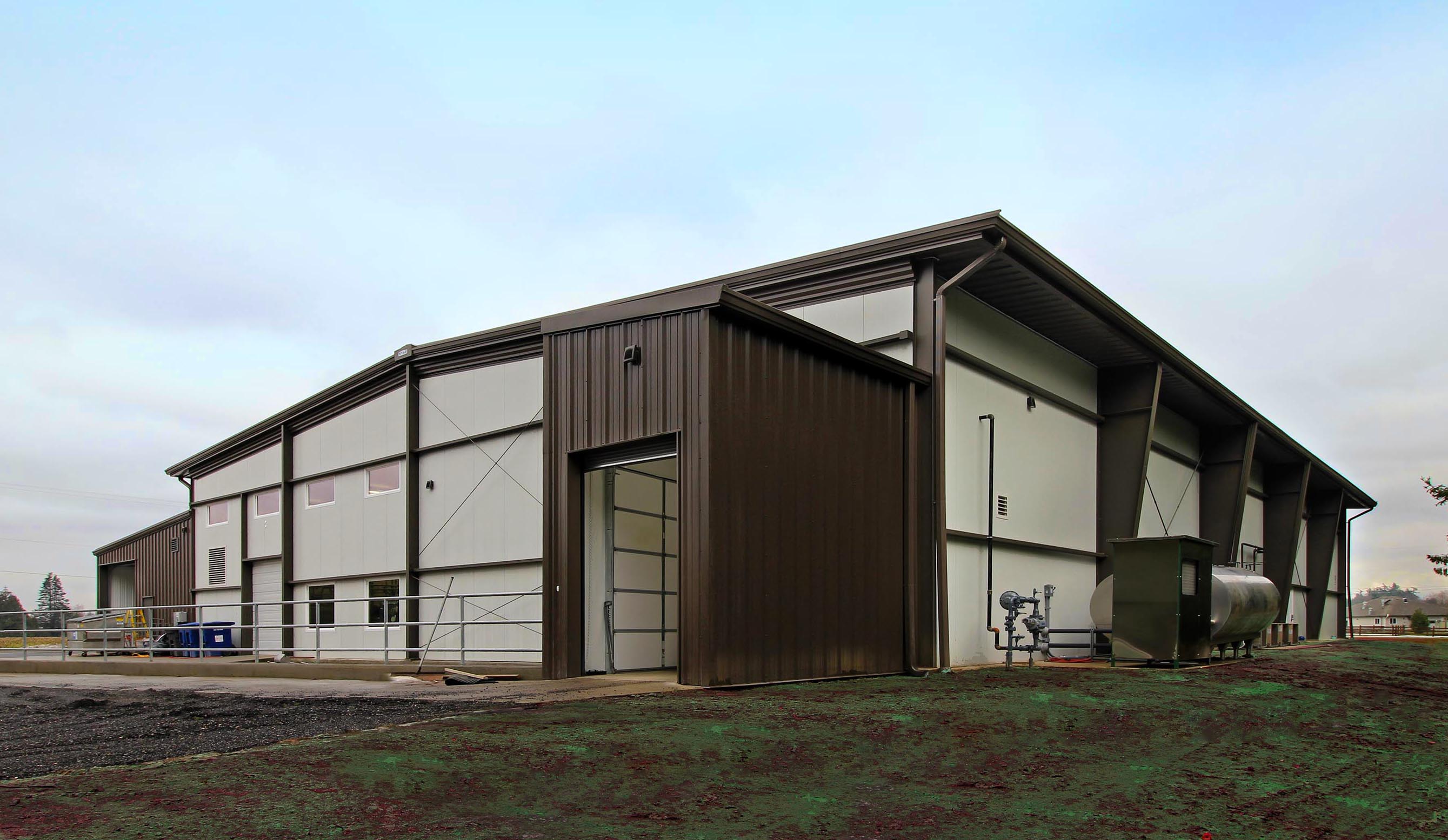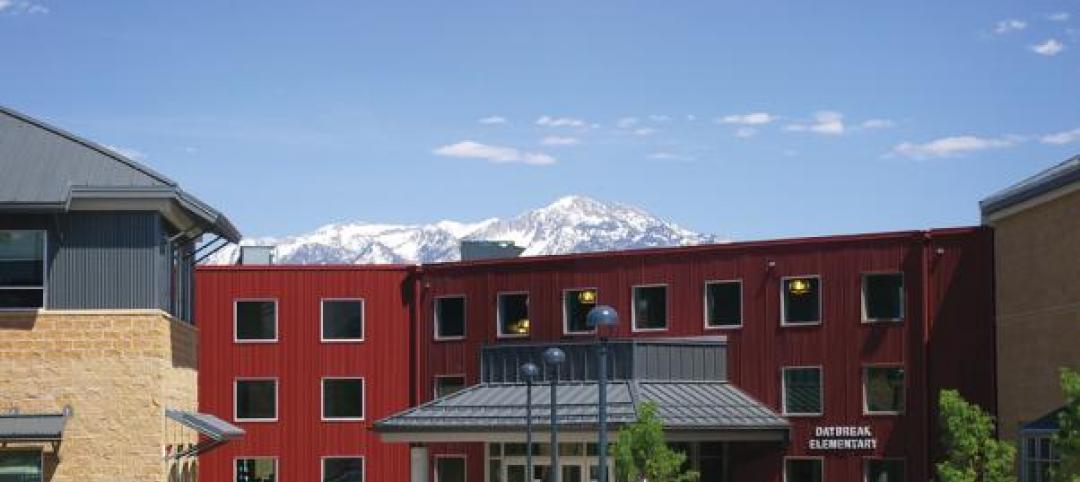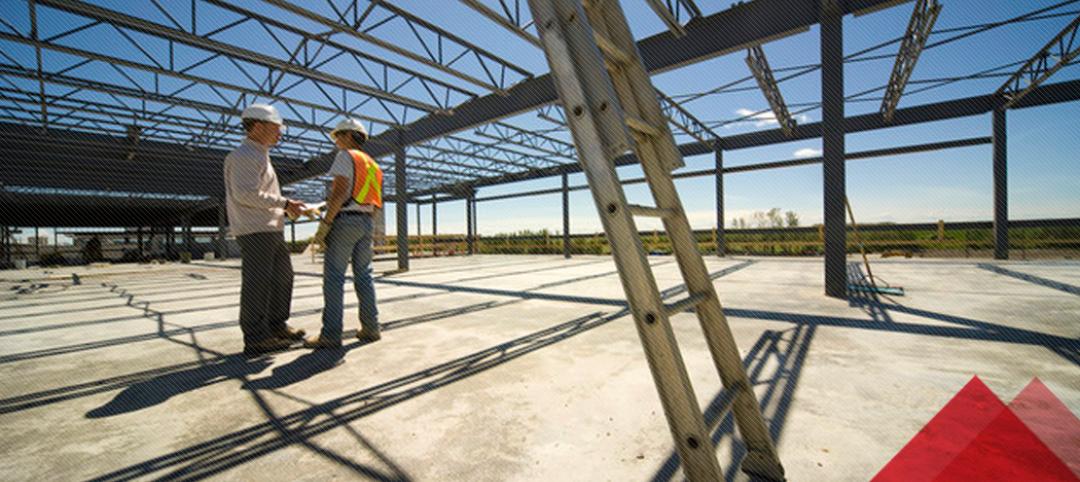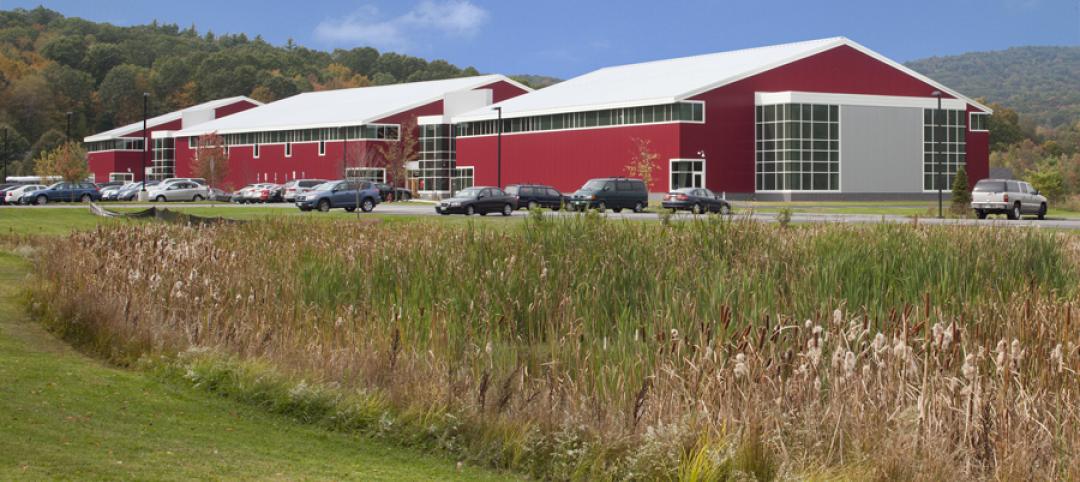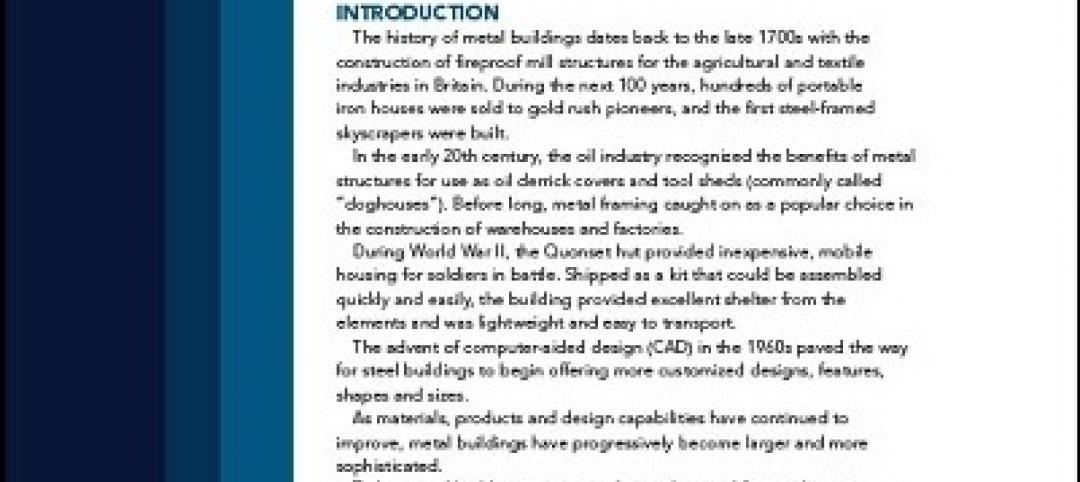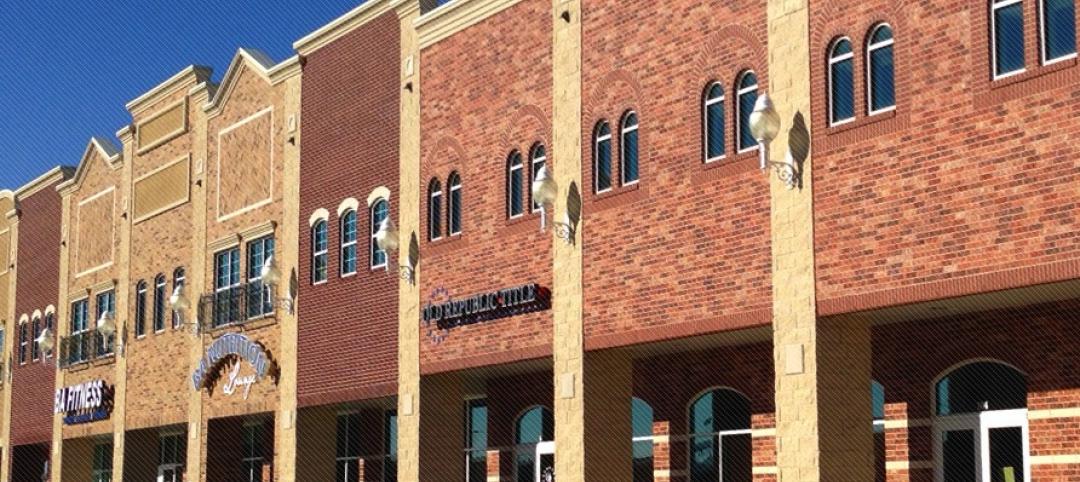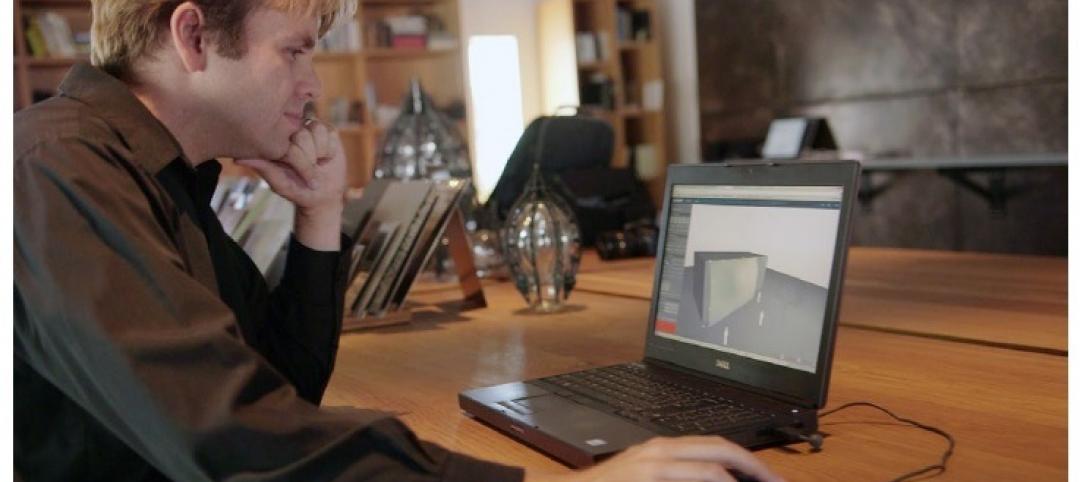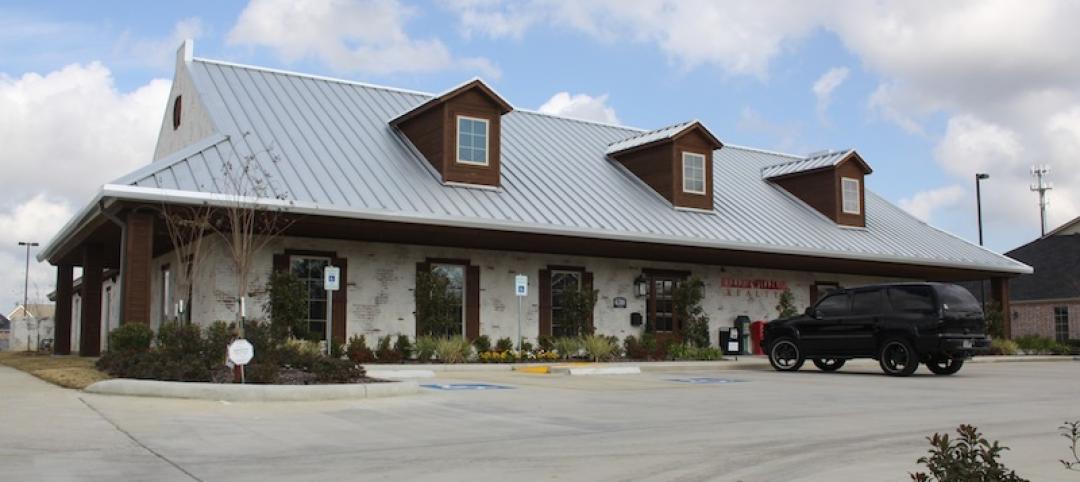Appel Farms in Ferndale, WA, is a small business with an attractive concept: artisanal cheese that comes straight from pasture to plate. 200 head of cattle graze at the back of the property, they’re milked in an on-site milking parlor, the cream is made to cheese in an on-site plant, and it’s sold in the store up front. But after 30 years of making cheese in wooden barn-space, this second generation family-owned business needed to improve the cheese-making facility at the heart of the operation. The solution turned out to be a 12,000 sf metal building system from Star Building Systems, featuring an unusual exoskeleton design that catches the eye from the outside, and provides a clean, flat-walled space on the inside.
The suggestion to use a metal building system for the new cheese plant came from Star builder Faber Construction of Lynden, WA. As David Verret, Preconstruction Project Manager, relates, “We started to talk about insulation, and what kind of food grade surfaces are needed. The building is actually a big cooler, with four smaller coolers – though rather large ones – inside it. Using insulated metal panels, we were able to achieve a food-grade interior surface, get necessary insulation to meet energy codes, and also have exterior skin included in a single installation.” The exterior wall is made of four-inch panels, with five-inch panels for the interior coolers and freezers. “Each has big, heavy insulated vertical lift doors that open automatically when pushcarts come up,” adds Verret.
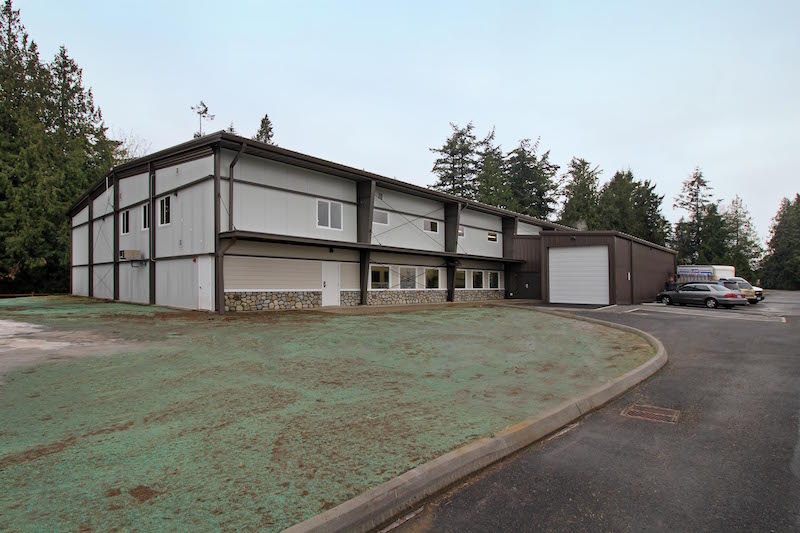
In order to maintain hygienic cleanliness inside the facility, smooth, continuous wall surfaces with a minimum number of joints, indents or protrusions is desirable. Since wall systems are all hung on the structural steel columns of the building, straight vertical columns work best. However, straight columns include a significant amount of unnecessary steel not needed for load-bearing. Many metal buildings use tapered columns, saving considerably on the cost of steel. To keep the flat walls and reap the benefits of tapered columns, Faber opted for an unusual “exoskeleton” design. The primary structure is sort of turned inside out, with the tapered side of the columns facing outwards, exposed as an exterior architectural element. The flat side of the columns faces inwards, and the wall panels are attached interior to the structural steel. (That special bit of engineering was supplied by Star’s in-house team.)
The large clear-span space in the center of the facility achieves another goal: public viewing of cheese-making. The plant includes large windows where visitors and would-be customers can watch cheese-making live. The view includes the gantry crane above the brine tank, which David Verret calls “One of the crown jewels of project.” The crane supports had to be cut through the ceiling panels. The Faber team spent several painstaking days on that detail alone.
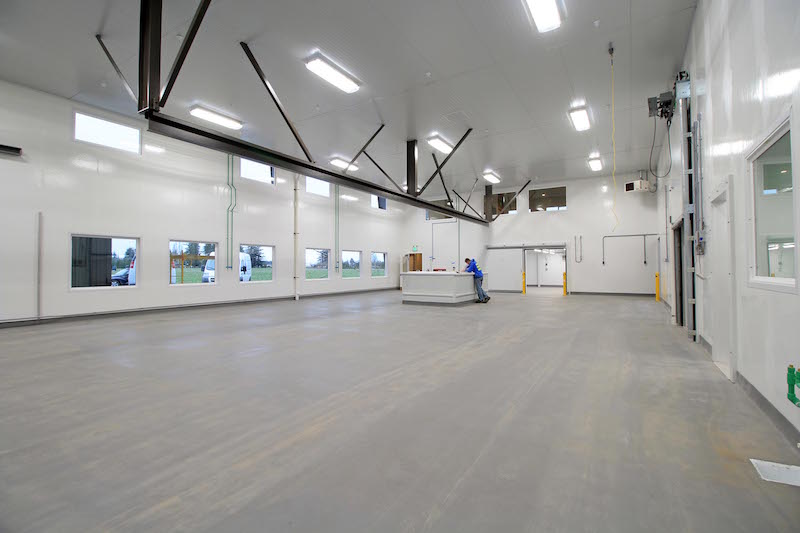
The result is a facility that serves up cheese to the community, even offers educational tours to elementary and middle school groups, extends a family tradition for a new generation, and presents an architectural landmark to the neighborhood.
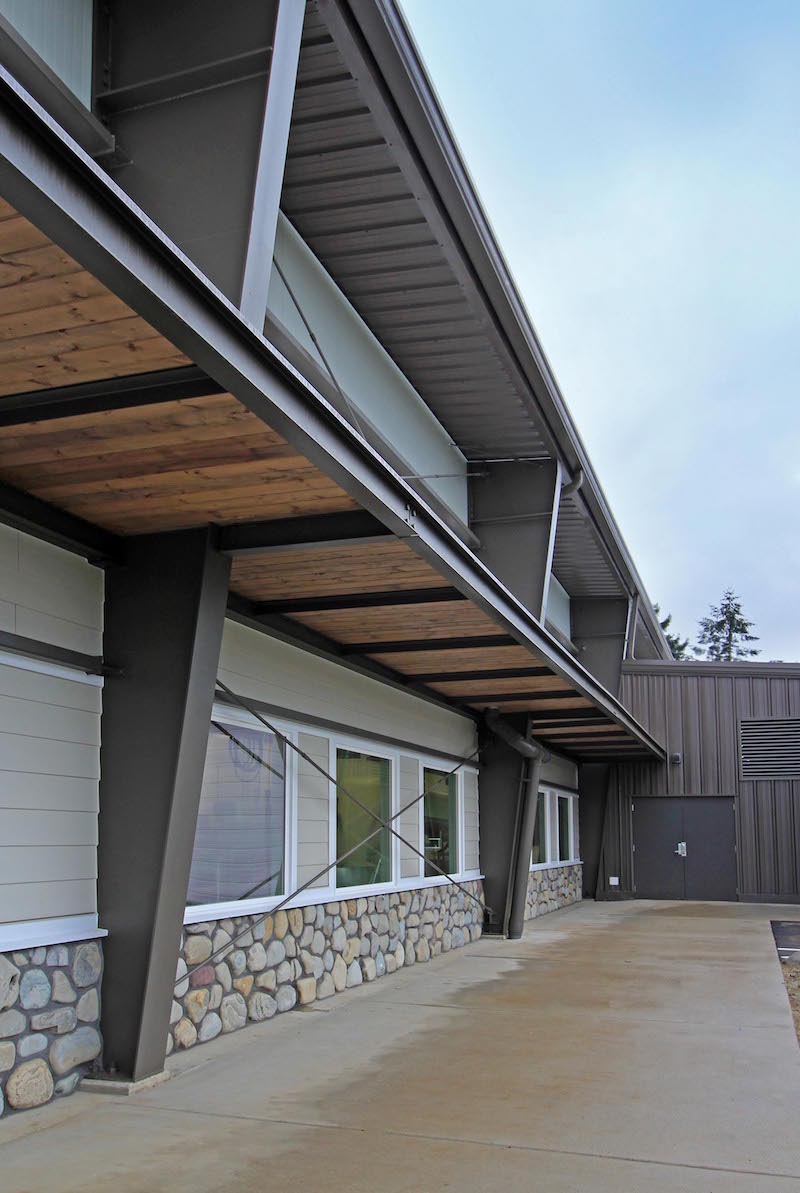
Related Stories
| Feb 19, 2014
AIA class: The ABCs of IMPs – How to design and build with insulated metal panels
This AIA/CES class offers insight in areas including policies and codes surrounding insulated metal panels, contributions from LEED and tax credits, energy modeling, and business development opportunities available with IMPs. Take this course and earn 1.0 AIA LU/HSW/SD.
| Feb 13, 2014
Why you should start with a builder
They say the best way to eat an elephant is one bite at a time. Expanding your building or constructing a new structure for your business, church, or school isn’t all that different. Attacking it is best done in small, deliberate pieces.
| Feb 6, 2014
New Hampshire metal building awes visitors
Visitors to the Keene Family YMCA in New Hampshire are often surprised by what they encounter. Liz Coppola calls it the “wow factor.” “Literally, there’s jaw dropping,” says Coppola, director of financial and program development for the Keene Family YMCA.
| Feb 5, 2014
CENTRIA Redefines Coating System with Versacor® Elite
The Versacor Elite Coating System is a premium metal coating system that provides the highest level of protection in the harshest climatic or environmental conditions.
| Jan 30, 2014
What to expect in the metal building industry in 2014
Every year brings changes. This one won’t be any different. We’ll see growth in some areas, declines in others. Here’s a little preview of what we’ll be writing about 2014 when 2015 comes rolling in.
| Jan 28, 2014
White Paper: How metal buildings deliver long-term value to schools
A new white paper from Star Building Systems outlines the benefits of metal buildings for public and private school building projects.
| Jan 23, 2014
Think you can recognize a metal building from the outside?
What looks like brick, stucco or wood on the outside could actually be a metal building. Metal is no longer easily detectable. It’s gotten sneakier visually. And a great example of that is the Madison Square retail center in Norman, Okla.
| Jan 13, 2014
Custom exterior fabricator A. Zahner unveils free façade design software for architects
The web-based tool uses the company's factory floor like "a massive rapid prototype machine,” allowing designers to manipulate designs on the fly based on cost and other factors, according to CEO/President Bill Zahner.
| Dec 16, 2013
Is the metal building industry in a technology shift?
Automation is the future you can’t avoid, though you may try. Even within the metal building industry—which is made up of skilled tradesmen—automation has revolutionized, and will continue revolutionizing, how we work.
| Dec 10, 2013
16 great solutions for architects, engineers, and contractors
From a crowd-funded smart shovel to a why-didn’t-someone-do-this-sooner scheme for managing traffic in public restrooms, these ideas are noteworthy for creative problem-solving. Here are some of the most intriguing innovations the BD+C community has brought to our attention this year.


